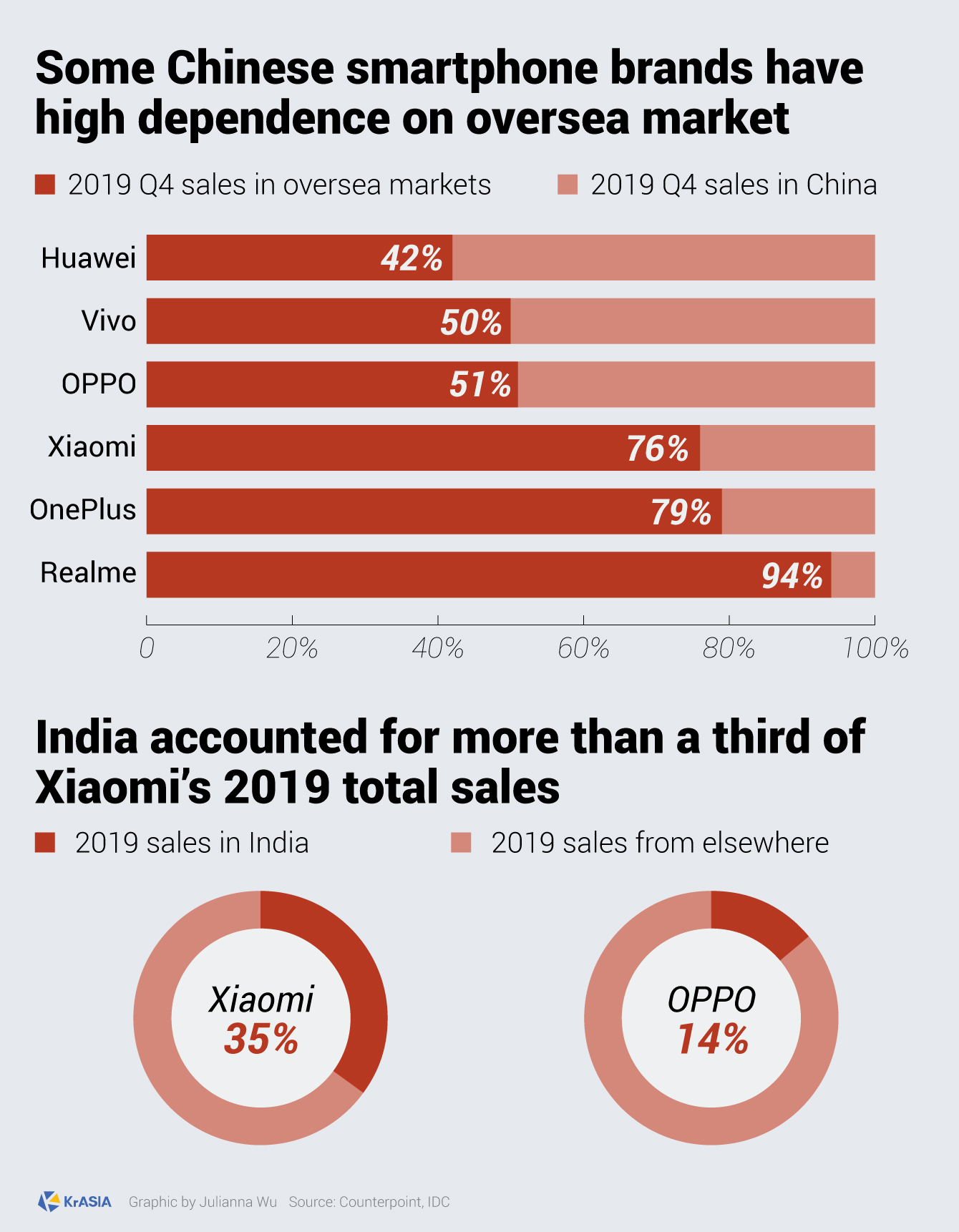Chinese smartphone manufacturers Xiaomi, BBK Electronics’ Oppo and Vivo, among others, would continue to see their shipments drop in the coming months as the coronavirus pandemic, though stabilized in China, has hit their sales in India and Southeast Asia, 36Kr reported.
In March, India, Malaysia, Thailand, Laos, Vietnam, and Singapore have all ordered their citizens to hunker down, and demanded most shops to close their doors.
As a result, Investment bank China International Capital Corporation (CICC) has lowered its global smartphone shipment forecast for the second time to a 7% year-on-year drop in late March, to reflect the negative impact caused by the COVID-19 outbreak.
“We believe that the sharp decline in overseas demand will directly affect the performance of China’s supply chain in 2020 Q2 and beyond,” said the CICC in their report.
These overseas markets accounted for 47% of Chinese mobile phone brands’ global demand, according to the CICC. For instance, in 2019, India accounted for 35% of Xiaomi’s global sales. The firm is also the largest phone brand in the country by market share, IDC data shows.
Meanwhile, Oppo’s sub-brand Realme has been the most affected, since 94% of its phones are destined to overseas market, followed by BBK’s OnePlus, which sells 79% of its devices to international markets.

In light of the fast-spreading virus, Xiaomi, Vivo, and Realme have all postponed their new headset launches and sales in India, as Android Authority reported.
It is also worth mentioning that the epidemic also restricts the R&D progress of the phone manufacturers, as it is stopping employees from going back to their lab in South and Southeast Asia.
